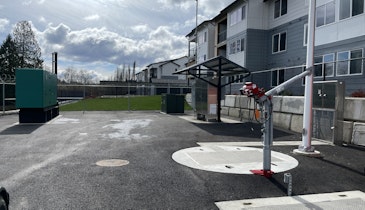The Training and Certifi-cation Program required by the Liquid Waste Disposal and Treatment Regulations becomes operational on July 1. Certification is required no later than July 1, 2009.
Those who must complete the training are homeowners installing their own onsite systems, installers with valid Construction Industries Division licenses or professional engineers conducting property transfer inspections, and Installer Specialists, a proposed, voluntary certification level for qualified installers. Installer Specialists would be pre-authorized to inspect the systems they install or modify.
The program also requires manufacturers of approved advanced treatment systems to provide training and certification for installers of their systems once per year. A training schedule is at www.nmenv.state. nm.us/fod/LiquidWaste/training. schedule.html.
Oklahoma
The Department of Environ-mental Quality is changing its procedures for obtaining or renewing individual licenses and certifications for onsite installers and soil profilers. In response to the state’s new immigration law and Taxpayer and Citizen Protection Act, U.S. citizens older than 14 must provide a photo ID and birth certificate to DEQ to apply for or renew licenses and certifications.
Non-U.S. citizens must provide both and a signed and notarized Affidavit Regarding Citizenship. Additionally, DEQ is required to enter all non-U.S. citizens into the Department of Homeland Security’s Systematic Alien Verification for Entitlements program to verify eligibility for agency-issued licenses and certifications.
The state’s Administrative Code and Register is now online. It offers easy access to a centralized database of Oklahoma’s rules and executive orders, and a listing of adopted rules that become effective 10 days after publication in the Register. Go to www.sos.state. ok.us, then click the Office of Admin. Rules tab.
Wisconsin
A new law restricting county septic regulators from soil testing and the installation, design, maintenance, repair, and sale of onsite systems takes effect on Nov. 1. The Department of Commerce is drafting rules on how to enforce the law.
Proposed code changes redefine occasional occupancy as occupying a building served by an onsite system for less than 120 days per year. County regulators may establish an alternative maintenance program for these systems or owners may provide regulators with written notices of occasional occupancy and a management plan.
The Wisconsin Onsite Water Recycling Association is concerned that seasonal properties should be maintained to higher standards, due to sporadic use and shock loads during peak periods.
The department also intends to increase plan review and sanitary permit fees, and raise the management license from $60 every four years to $90, and the soil tester license fee from $240 to $300.
Ontario
The Ministry of Municipal Affairs and Housing (MMAH) proposed changes to the Building Code that would introduce administrative requirements to support the maintenance or inspection of onsite systems, and regulate tertiary treatment disposal beds. The Ontario Association of Sewage Industry Services is writing a position paper on the proposed changes. Look for it at www.oasisontario.on.ca.
Pennsylvania
The Department of Environmental Protection (DEP) has proposed new onsite guidelines for land development, site suitability, and alternatives analysis. The document will require townships and municipalities to adopt ordinances to oversee operation and maintenance of onsite systems when subdivisions or land developments are proposed. The guidelines will apply to subdivisions that have been exempt from planning.
The Pennsylvania State Associ-ation of Township Supervisors (PSATS) and Pennsylvania Associ-ation of Sewage Enforcement Officers encouraged the DEP to not release the guidance document until its new regulations are revealed and their effect can be determined. The DEP has not yet published a draft of those regulations.
Opponents argue that the cost to municipalities, developers, landowners, and taxpayers could be high. Townships would have to inspect about one-third of their onsite systems yearly, besides keeping track of them and permitting all repairs. Townships that have not adopted a sewage management ordinance have the authority to do so under the current regulations. View the document and PASEO’s comments at www.pa-seo.org.
Florida
A recent complaint investigation of alleged unlawful septic tank contracting revealed a misunderstanding centering on the licensing requirements for tank certifications and measuring tank volume.
According to Ed Barranco’s article in the March newsletter of the Florida Onsite Wastewater Associ-ation, existing system and repair evaluations may be conducted by state-licensed engineers, Depart-ment of Health employees, registered and master septic tank contractors, and private certified environmental health professionals.
Only registered or master septic tank contractors or licensed plumbing contractors who also are DOH-permitted septage cleaning services can conduct and give tank certifications. The department’s new language clarifies these requirements and is ready for incorporation into the next version of the Florida Statutes.
FOWA is supporting three bills before the legislature that would:
• Continue research on cost-effective methods to reduce nitrogen in springs.
• Direct the DOH to evaluate onsite nitrogen reduction systems and alternative nitrogen reduction media in drainfields.
• Require onsite systems installed before 1983 to be pumped and inspected every five years.





